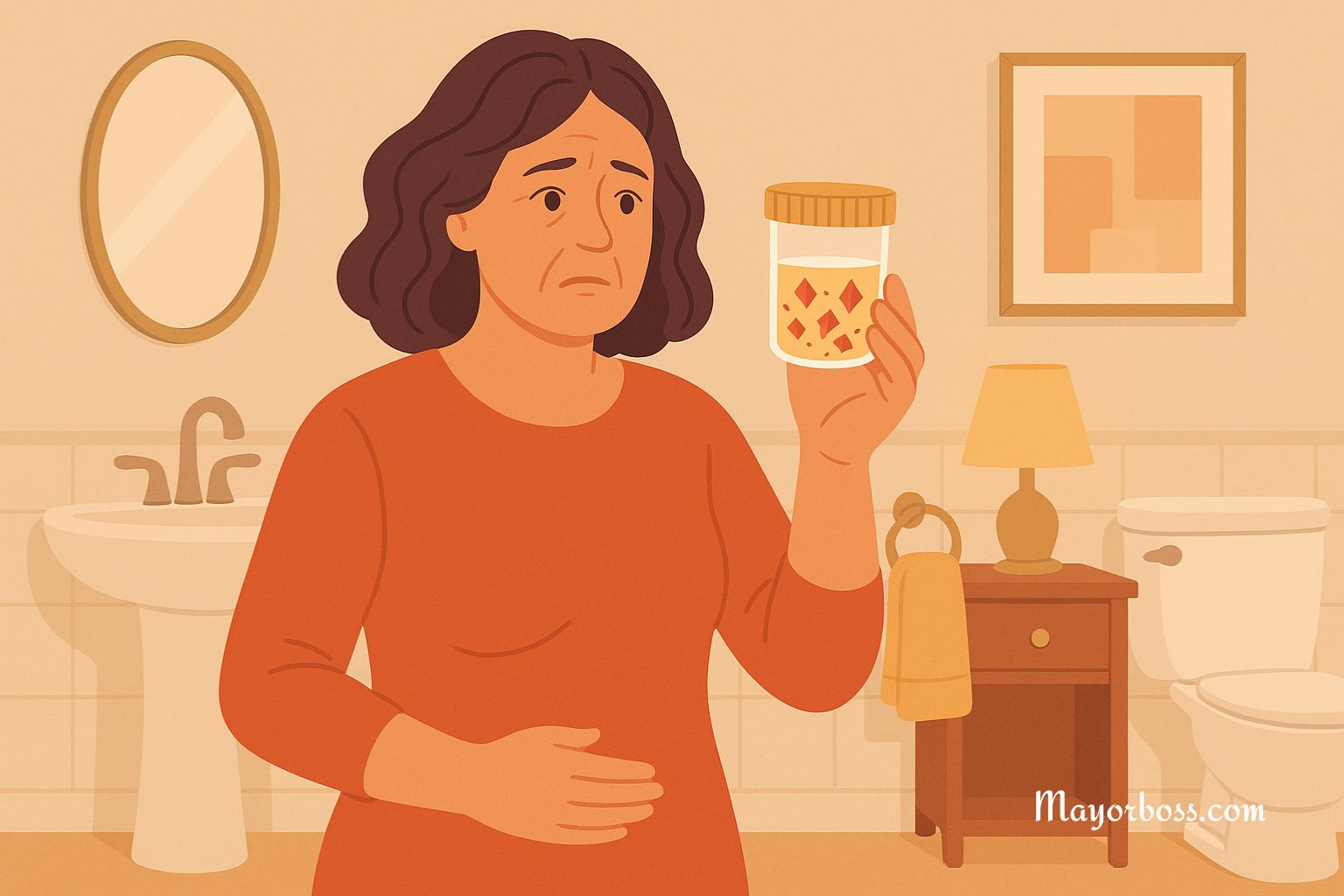Crystals in Your Urine? What It Could Mean for Your Health
What are crystals in urine? Crystals in urine are tiny solid particles. They form when substances like minerals, salts, or proteins clump together in the urine. Sometimes, these particles are so small that you cannot see them without a microscope. Other times, they may make the urine look cloudy or cause sediment to settle at the bottom of the toilet bowl.
In many cases, crystals are harmless and temporary. However, they can also be an early warning sign of kidney stones, infections, or other medical conditions.

Why Do Crystals Form In Urine?
Several factors can cause crystals to form in your urine:
- Dehydration: When you do not drink enough water, your urine becomes more concentrated. This concentration allows minerals and salts to stick together more easily.
- Diet: High-protein foods, salty snacks, and foods rich in oxalates (like spinach and nuts) can raise the risk of crystal formation.
- Urinary tract infections (UTIs): Certain bacteria can change the chemistry of your urine, leading to crystal formation.
- Medications or supplements: Some drugs or vitamin supplements can increase the likelihood of crystals.
- Underlying medical conditions: Kidney disease, gout, or problems with calcium or phosphorus balance can all contribute to crystal buildup.
Different Types of Urine Crystals
Not all crystals are the same. Some of the most common types include:
- Calcium oxalate crystals: These are the most common and often linked to kidney stones.
- Uric acid crystals: Common in people who eat a lot of red meat or seafood. They are also seen in gout.
- Struvite crystals: Usually form during urinary tract infections, especially if certain bacteria are present.
- Cystine crystals: Rare but important because they suggest a genetic condition called cystinuria.
Each type of crystal tells a different story about what might be happening inside your body.
Symptoms You Might Notice
Sometimes, crystals in urine cause no symptoms at all. Other times, they can be linked to:
- Cloudy or dark-colored urine
- Pain or burning when urinating
- Frequent need to urinate
- Lower back or abdominal pain
- Blood in the urine
- Bad-smelling urine
- Fever and chills
If you notice any of these symptoms, it is important to speak with a healthcare provider.
How Are Crystals in Urine Diagnosed?
Doctors usually find crystals during a routine urinalysis. This simple test checks your urine under a microscope. If crystals are found, the lab can sometimes identify their type.
Depending on what the doctor sees, they might order more tests, like blood work or imaging studies, to look at your kidneys and urinary tract.
What Treatments Are Available For Crystals in Urine?
Treatment depends on the cause:
- Increase fluid intake: Drinking more water can help flush out crystals and prevent new ones from forming.
- Dietary changes: Your doctor may suggest avoiding foods high in oxalates, purines, or salt.
- Medications: Infections may require antibiotics. Gout or kidney stones may need specific medications to manage the underlying problem.
- Treat underlying conditions: If another disease, like kidney disease, is found, it must be managed carefully to prevent further complications.
When Should You See a Doctor?
Not every case of crystals in urine means there is a serious problem. However, you should seek medical advice if:
- You have persistent pain during urination
- Your urine is consistently cloudy or discolored
- You notice blood in your urine
- You have a history of kidney stones
- You develop fever, chills, or severe back pain
Prompt treatment can prevent small issues from turning into larger ones, like kidney stones or infections that can harm your kidneys.
Can Crystals in Urine Be Prevented?
In many cases, yes. Some helpful tips include:
- Drink plenty of water every day.
- Eat a balanced diet rich in fruits and vegetables.
- Limit high-salt and high-protein foods if advised.
- Avoid excessive intake of vitamin C supplements, which can promote oxalate production.
- Follow any treatment plan your doctor recommends if you have chronic conditions like gout or kidney disease.
Small daily choices can lower the risk of crystal formation over time.
Final Thoughts
Finding crystals in your urine may sound alarming, but it is often a manageable issue. In many cases, simple steps like staying hydrated and eating a healthy diet can prevent them from forming. However, it is always important to talk to a healthcare professional if you notice changes.






